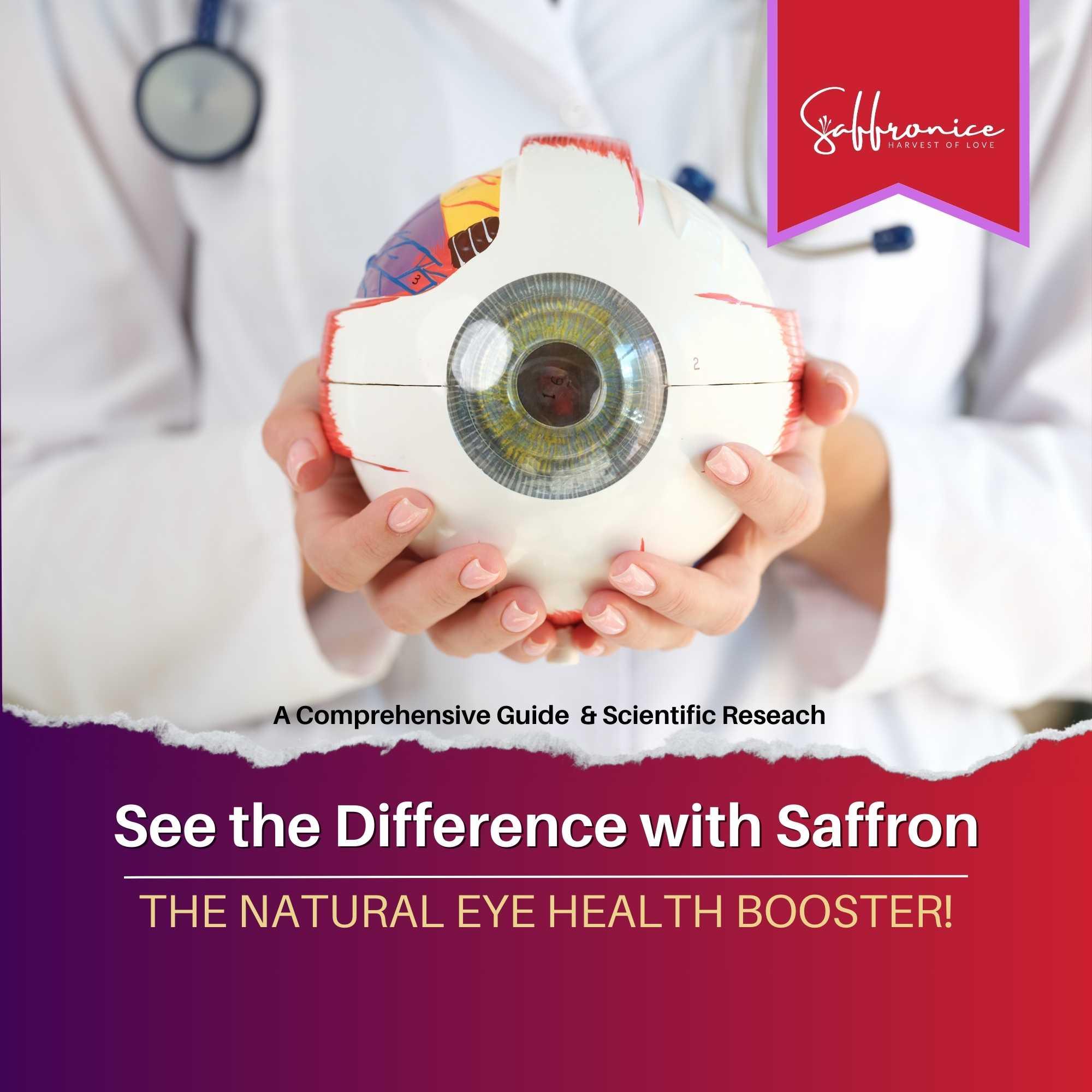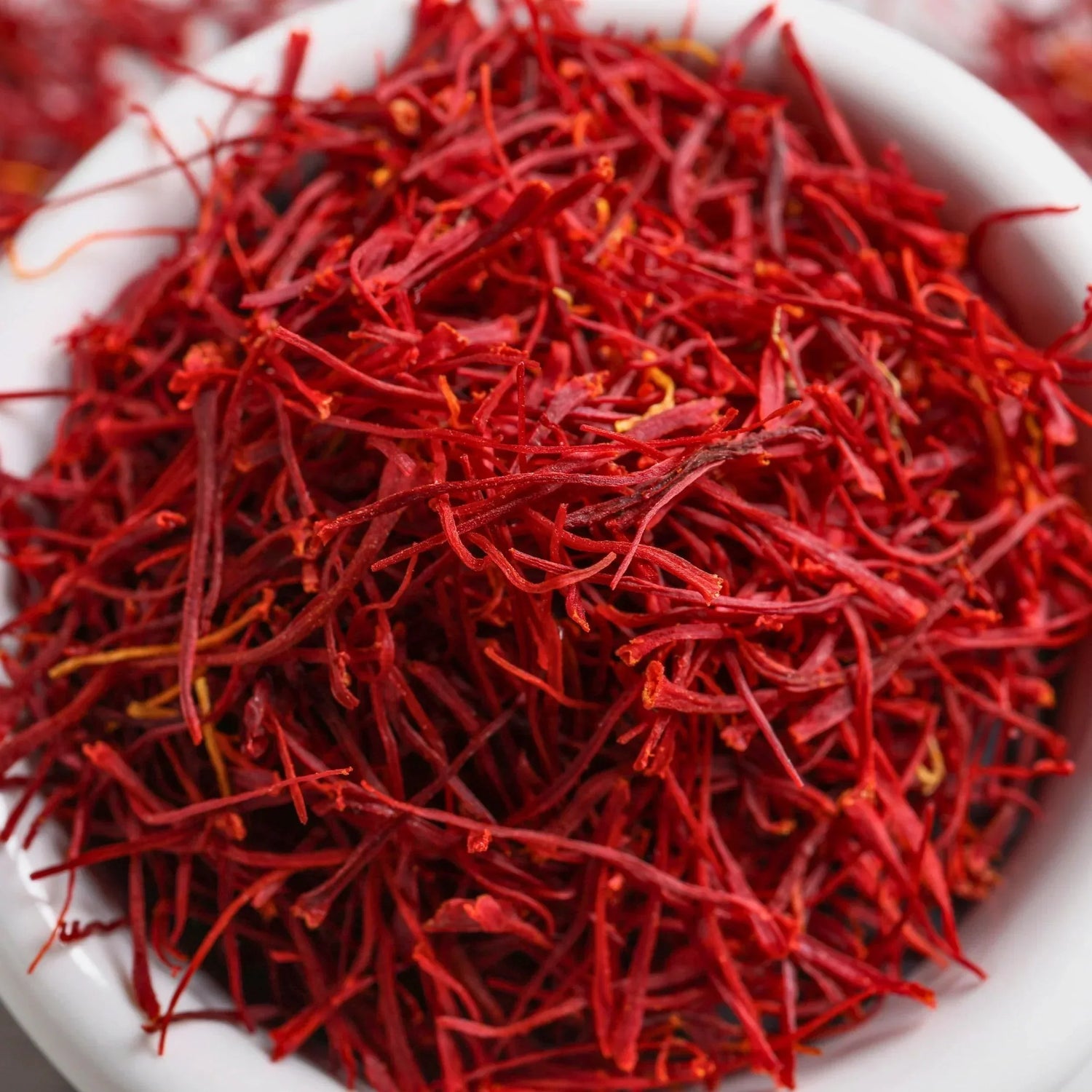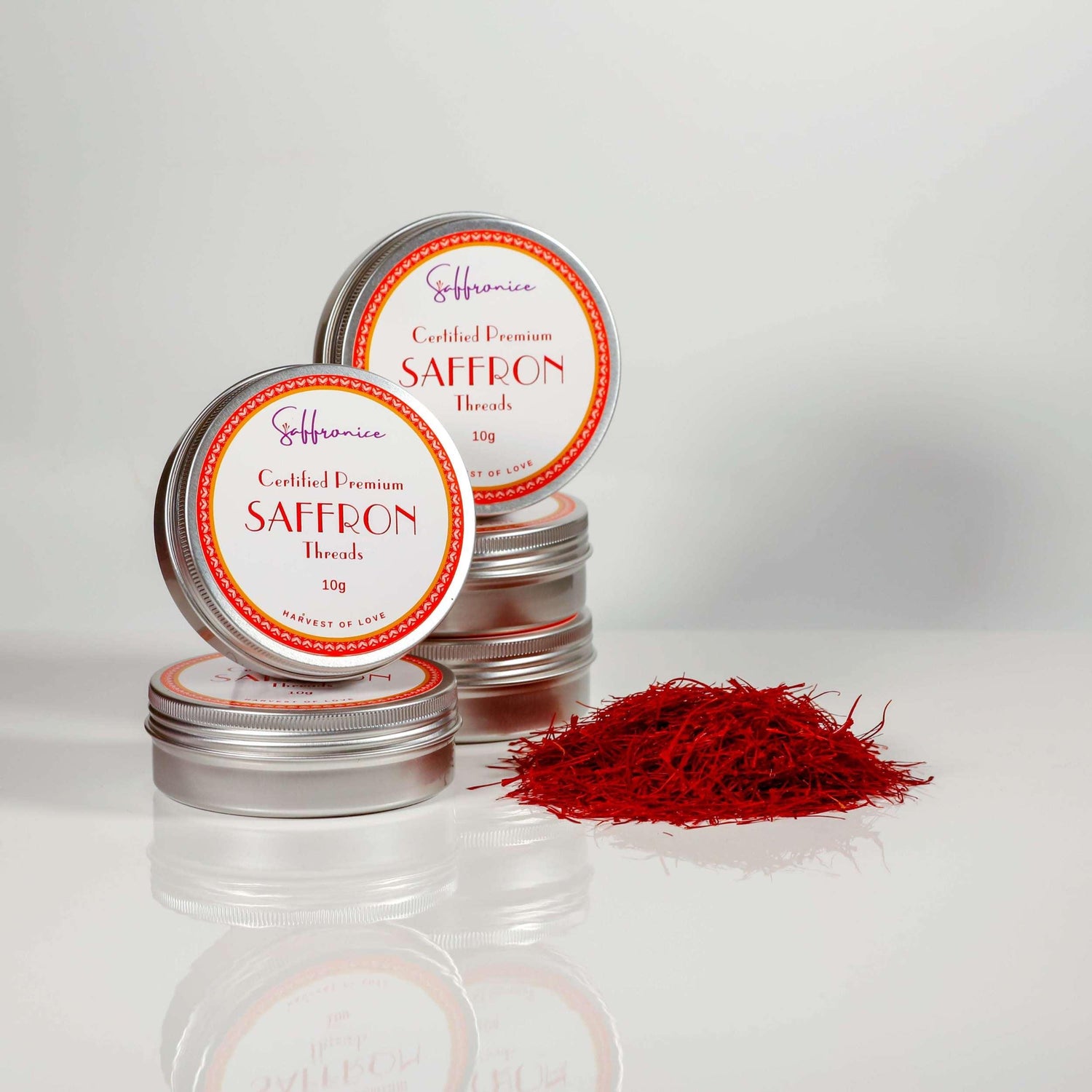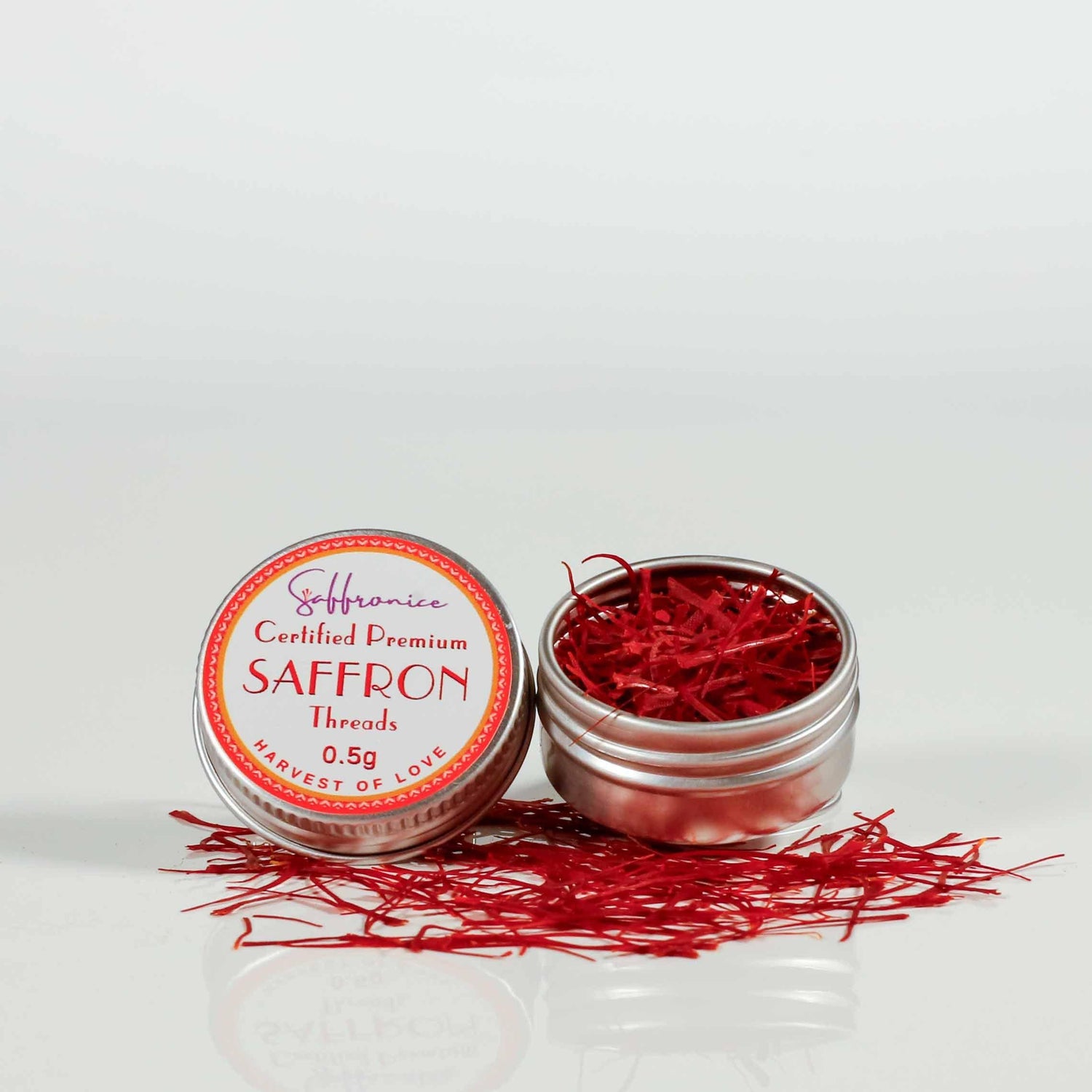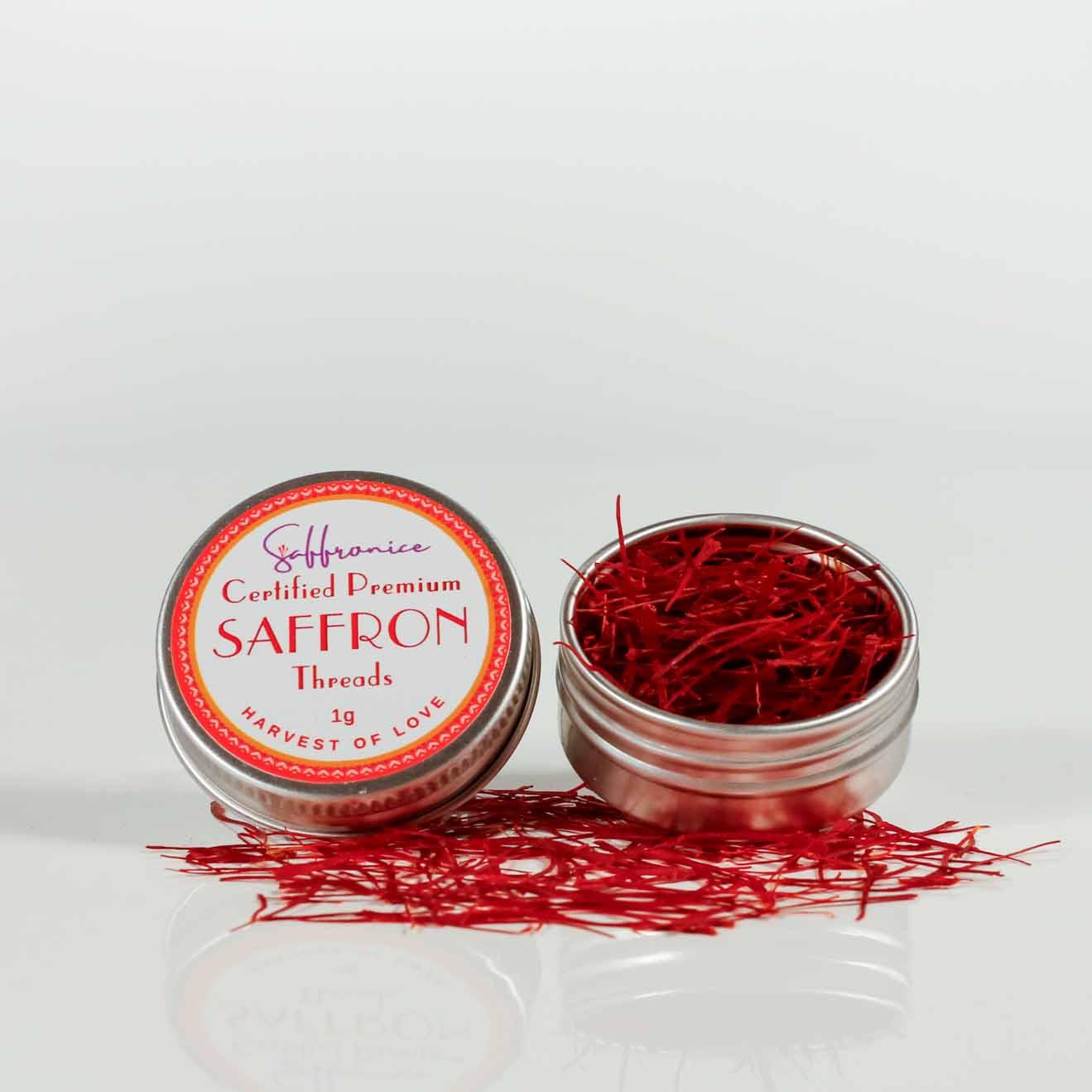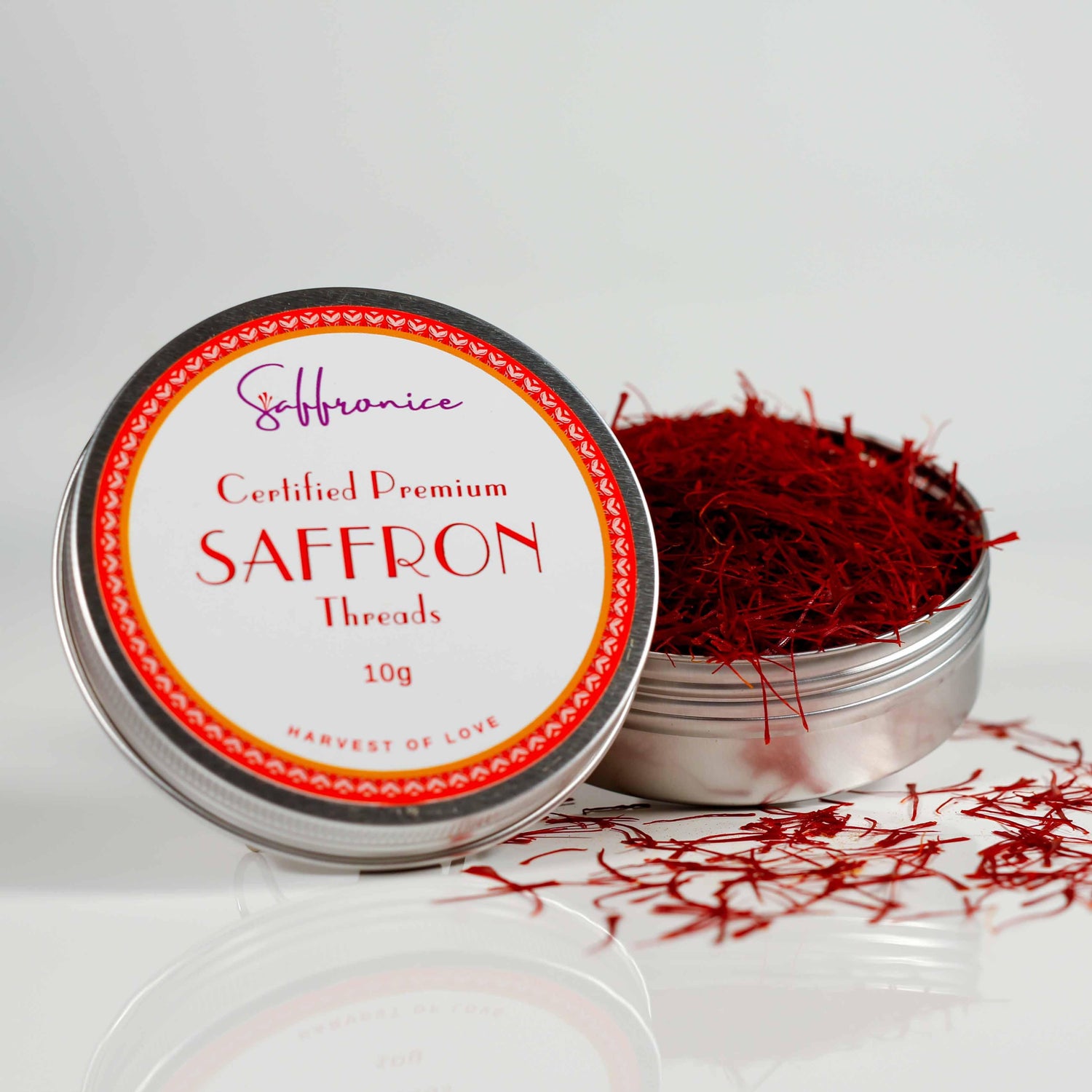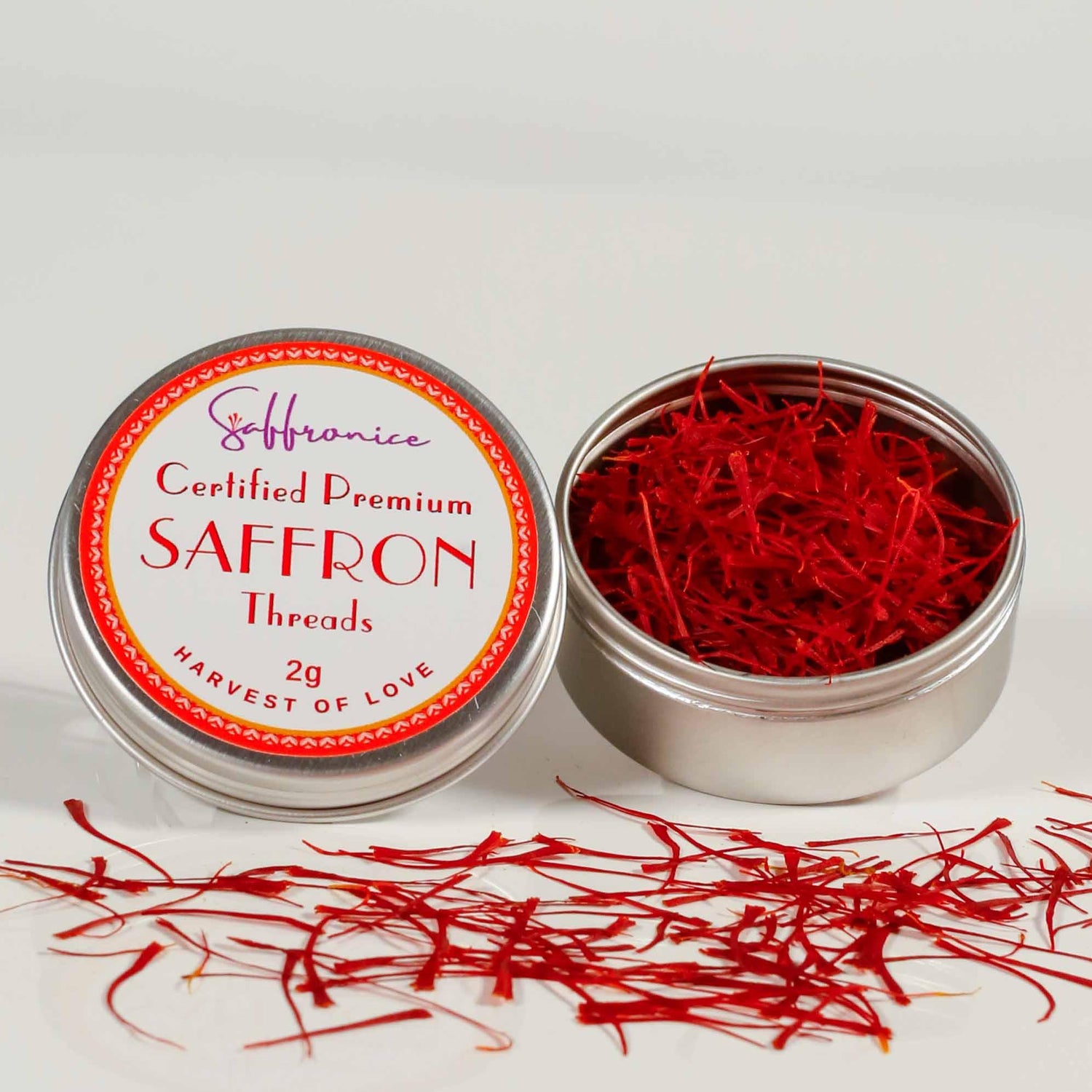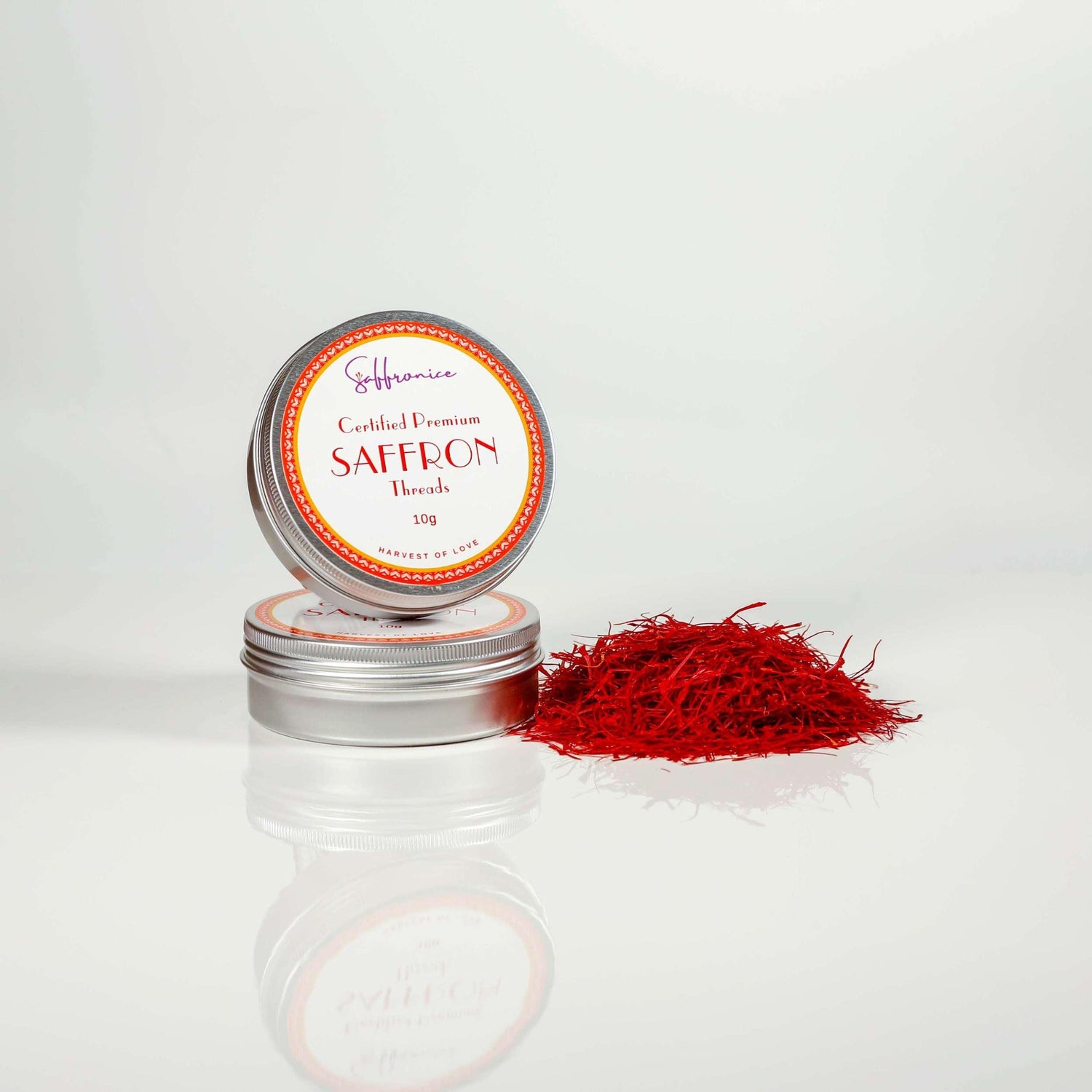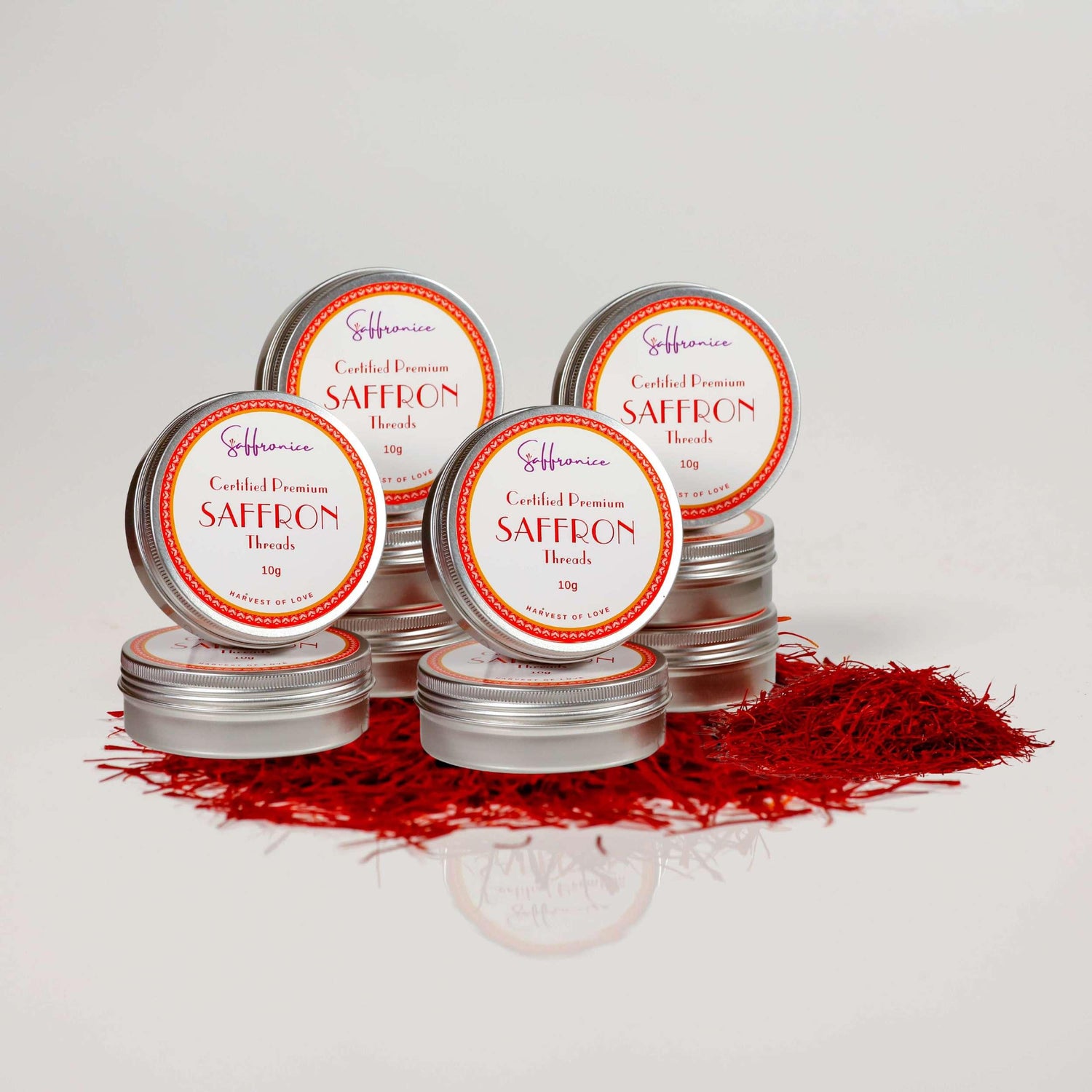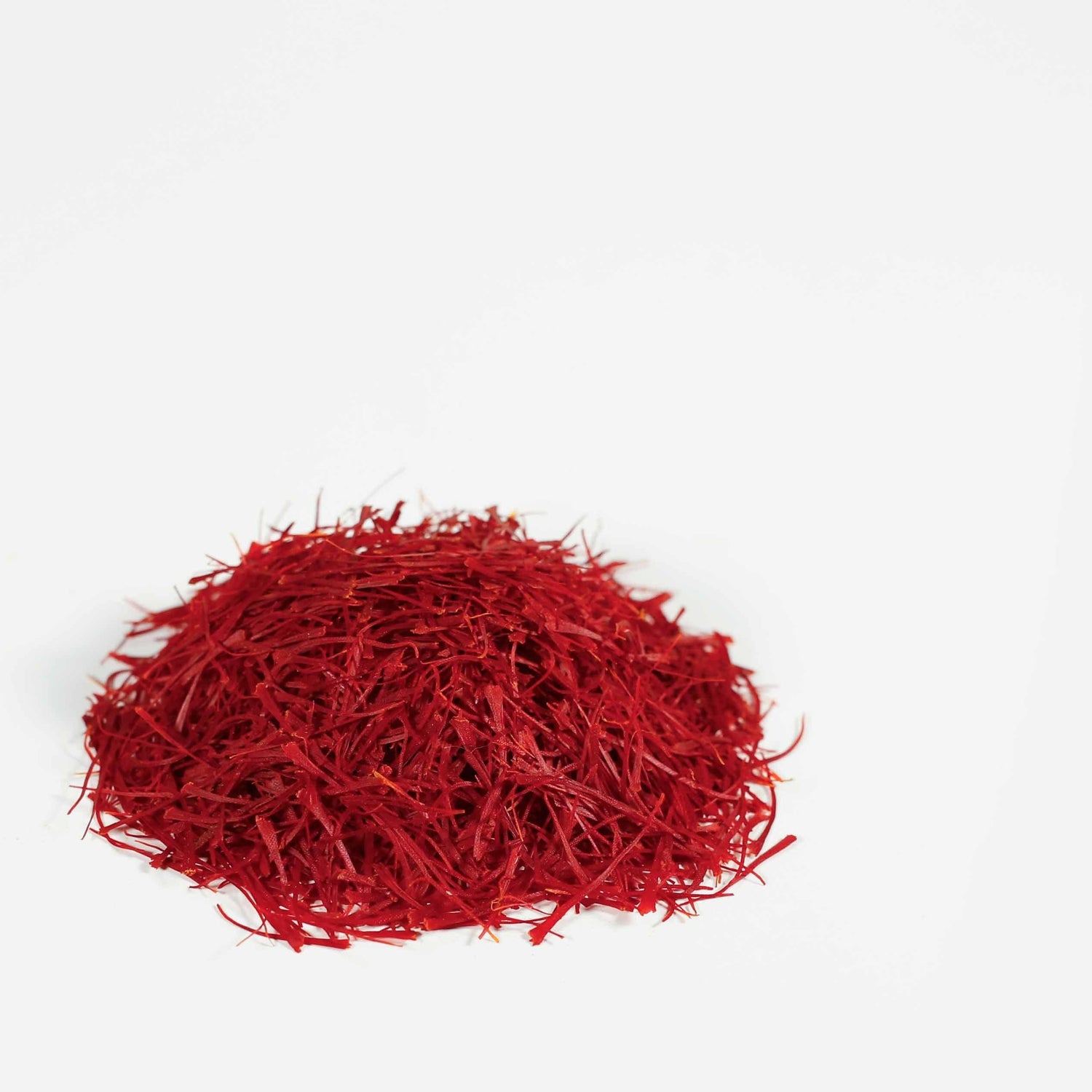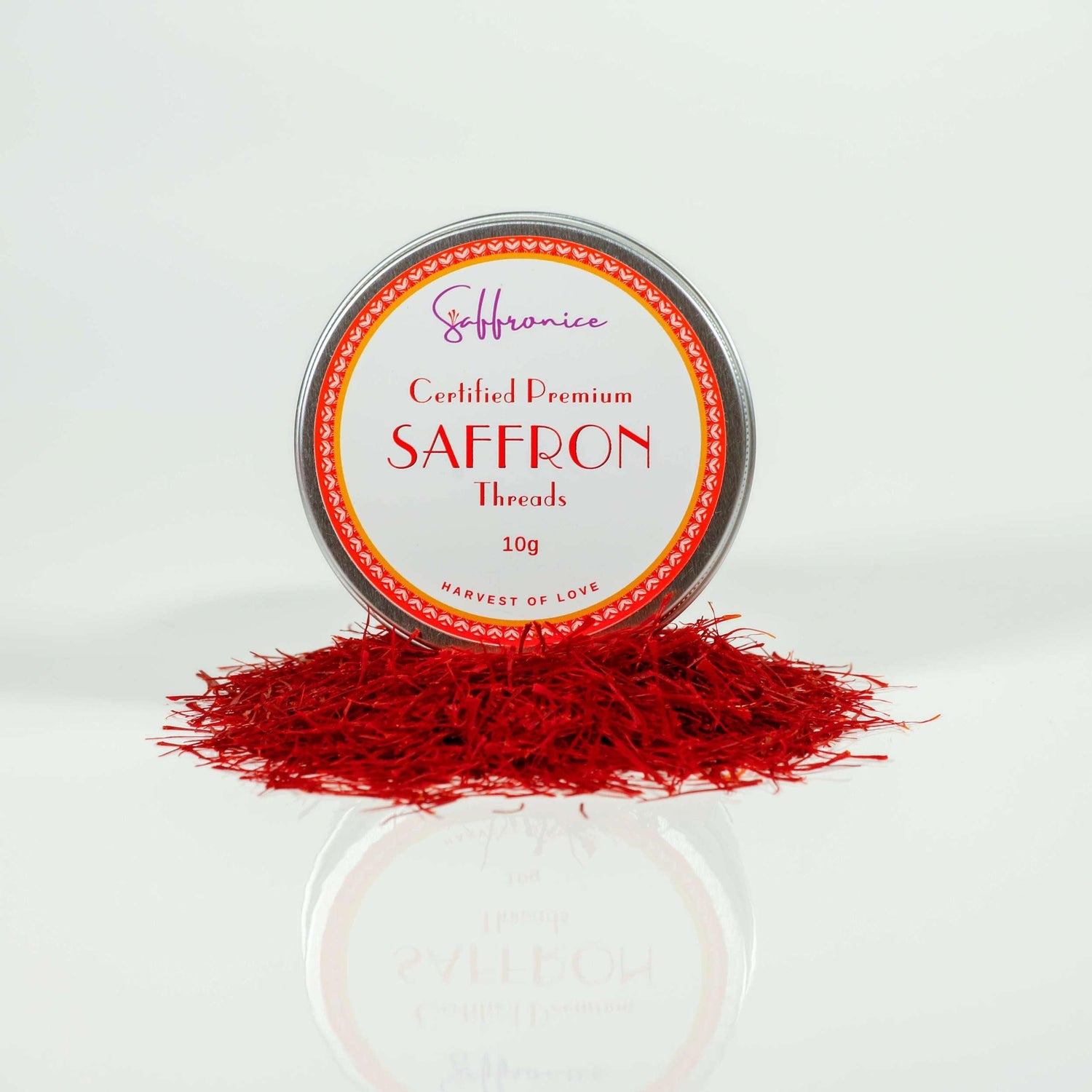Exploring Common Eye Health Conditions
Eye health is crucial to our overall well-being, yet it is often overlooked until problems arise. Common eye conditions can range from mild irritations to severe diseases that may impair vision. These include age-related macular degeneration (AMD), cataracts, diabetic Retinopathy, and glaucoma. Each condition affects the eye differently, leading to symptoms like blurred vision, reduced colour intensity, and, in severe cases, vision loss. Understanding these conditions is the first step towards proactive eye care.
Saffron: From Traditional Spice to Modern Therapeutic Wonder

Enter Saffron, the golden spice that has been colouring and flavouring our food for centuries. But there's more to Saffron than meets the eye (pun intended!). This vibrant spice, derived from the Crocus sativus flower, is emerging as a promising therapeutic agent in modern healthcare, particularly in eye health. Traditionally valued for its culinary and medicinal properties, Saffron contains potent antioxidants such as Crocin, crocetin, and safranal. These compounds are thought to have protective effects on eye cells, offering a beacon of hope for those battling eye health issues. Let's delve into the fascinating world of Saffron and discover how this ancient spice is making a modern breakthrough in eye health management. 🌼👁️🔍
Saffron Through the Ages: More Than Just a Spice
Scientifically known as Crocus sativus, Saffron is often lauded as the 'king of spices'. Its story is as colourful as the spice, with a rich history spanning thousands of years. Initially cultivated in Greece, it spread across continents, prized not just for its culinary prowess but also for its therapeutic benefits. Ancient healers from Greece and Persia used Saffron as a treatment for everything from melancholy to fevers. This tradition has passed through generations, and today, Saffron is revered in alternative and modern medicine.
Avicenna's Insight: Saffron's Role in Eye Health

Avicenna, or Ibn Sina, a prominent Persian polymath, authored the influential work "The Canon of Medicine" (al-Qanun fi al-tib) around 1025. This comprehensive text includes detailed observations on the uses and benefits of saffron, encompassing a range of applications from mental health to eye care. Modern scientific research corroborates many of Avicenna's findings about saffron, especially its potential in eye health, demonstrating the lasting relevance of his insights and the importance of traditional knowledge in current medical research.
Study: A review of Avicenna's the Canon of Medicine and saffron
The Power Duo: Crocin and Crocetin
The secret to Saffron's health magic lies in two key components: Crocin and Crocetin. These are the dynamic duo that give Saffron its vibrant colour and a multitude of health benefits. Let's break it down:
-
Crocin: This is the primary colouring compound in Saffron. But Crocin is more than just a pretty face. It's a potent antioxidant, which helps combat the harmful effects of oxidative stress in the body, a known contributor to various eye diseases.
-
Crocetin: Another star compound, crocetin, is an antioxidant and boasts anti-inflammatory and neuroprotective properties. This makes it a valuable ally in protecting the delicate structures of the eye, potentially slowing down or preventing damage from conditions like AMD and cataracts.
Crocin and crocetin form a formidable team, fighting off the bad guys (free radicals, inflammation) and protecting our precious peepers. With its trove of these beneficial compounds, Saffron emerges as a culinary delight and a beacon of hope in eye health. 🌟👀
Saffron's Magic in Eye Health: A Closer Look at Its Mechanism

Protecting the Retina and Lens with Saffron's Antioxidants
Regarding eye health, the retina and lens are critical players. As we age, these parts of the eye can become susceptible to damage, leading to conditions like cataracts and age-related macular degeneration (AMD). Here's where saffron steps in with its antioxidant superpowers.
Antioxidants are like the body's defence against harmful molecules known as free radicals. These free radicals can cause oxidative stress, a significant factor in the deterioration of the eye's retina and lens. Saffron's rich array of antioxidants, particularly Crocin and crocetin, act as a shield, safeguarding these vital eye components from oxidative damage. This protective action is especially beneficial in aging eyes, helping to maintain clarity of vision and overall eye health.
The Role of Carotenoids in Retinal Health
Carotenoids, the pigments that give Saffron its striking colour, are more than just a visual treat. These natural compounds play a pivotal role in retinal health. The retina, which is responsible for converting light into signals that our brain interprets as vision, greatly benefits from the carotenoids in Saffron.
Carotenoids, specifically in Saffron, are believed to aid in the restoration and function of retinal cells. They help regenerate rhodopsin, a protein in the eyes that in vision cells helps us see in low-light conditions. Additionally, these carotenoids may help reduce the risk of AMD and other degenerative eye diseases by strengthening the retina cells and protecting them from damage.
In summary, the antioxidants and carotenoids in saffron work synergistically to protect the retina and lens, which are particularly crucial as we age. This natural spice holds significant promise in maintaining eye health and potentially slowing down the progression of age-related eye conditions.
Saffron in the Spotlight: Clinical Research and Eye Health

Unveiling the Research: Trials and Studies on Saffron and Vision
The journey of Saffron from a kitchen shelf staple to a subject of medical research is fascinating. Several randomized clinical trial trials and studies have shed light on Saffron's potential to enhance eye health, mainly focusing on:
A. Improvement in Visual Acuity and Intraocular Pressure:
Research has shown promising results regarding Saffron's ability to improve visual acuity – the sharpness or clarity of vision. Studies also indicate a potential positive effect on intraocular pressure, crucial in both visual function and managing conditions like glaucoma.
Clinical studies:
The ocular hypotensive effect of saffron extract in primary open-angle glaucoma
A study of saffron supplementation in early age-related macular degeneration
B. Potential in Treating Eye Conditions:
Age-related macular degeneration (AMD), glaucoma, diabetic Retinopathy, and retinitis pigmentosa are among the eye conditions that could benefit from saffron supplementation. These studies suggest that Saffron's antioxidant and anti-inflammatory properties play a role in alleviating symptoms or slowing the progression of these diseases.
Clinical studies:
Effects of Saffron and its Constituents in Ocular Disorders
Beneficial effects of Saffron in retinal diseases
C. Specific Study Findings:
One notable finding from these studies is the improvement in best-corrected visual acuity with saffron supplementation. This means that individuals who supplemented their diet with Saffron experienced an enhancement in their vision to a level closer to normal, even when corrected with glasses or contact lenses. Additionally, some studies report improvements in retinal function, suggesting that Saffron may contribute to the overall health of the retina, which is crucial for good vision.
Clinical studies:
Saffron therapy for the treatment of mild/moderate age-related macular degeneration
The Bigger Picture: Saffron's Role in Eye Health Research

While these findings are promising, it's essential to approach them with cautious optimism. Research on Saffron and eye health is still growing, and more extensive studies are needed to understand the extent of Saffron's benefits. However, the current body of research provides a hopeful glimpse into the potential of this golden spice in enhancing and preserving our vision and overall eye health.
Saffron: A Ray of Hope for Various Eye Conditions
Age-Related Macular Degeneration (AMD): Seeing the World More Clearly
Age-related macular Degeneration (AMD) is a common eye condition that primarily affects the central part of the retina, leading to a loss in central vision. Research suggests Saffron could significantly improve AMD patients' central retinal function, and visual clarity. The antioxidants in Saffron are believed to protect the retinal cells from oxidative stress, a critical factor in the progression of AMD. Regular intake of Saffron may help enhance visual performance and slow the deterioration of vision in AMD.
Clinical studies:
Saffron therapy for the treatment of mild/moderate age-related macular degeneration
Glaucoma: A Potential Guardian Against Progressive Damage
Glaucoma, characterised by increased intraocular pressure, can damage the optic nerve and cause irreversible vision loss. Saffron's potential to decrease intraocular pressure has garnered interest in the ophthalmological community. Its antioxidant and anti-inflammatory properties protect against the progressive damage caused by glaucoma, thereby preserving vision and eye health.
Clinical studies:
The ocular hypotensive effect of saffron extract in primary open-angle glaucoma
Diabetic Retinopathy: Sharpening Vision in Diabetic Eyes
Diabetic Retinopathy, a complication of diabetes, affects the blood vessels of the retina and can lead to vision impairment. Studies have indicated that Saffron may benefit individuals with diabetic Retinopathy by reducing central macular thickness – a critical factor in the disease's progression. Additionally, the spice's ability to improve visual acuity can be particularly beneficial in managing the visual challenges faced by those with diabetic Retinopathy.
Clinical studies:
Pharmacological Effects of Saffron and its Constituents in Ocular Disorders
Retinitis Pigmentosa: A Beacon of Hope in Genetic Eye Disorders
Retinitis Pigmentosa, a group of genetic disorders affecting the retina, leads to progressive vision loss. The potential of Saffron to slow down or even reverse the course of this disease offers a glimmer of hope. Its neuroprotective properties might protect the retinal cells from degeneration, potentially halting or slowing the progression of Retinitis Pigmentosa.
Clinical trial: Crocin as a vision supplement
Dosage and Administration: Making the Most of Saffron for Eye Health

Finding the Right Dose: Saffron Supplementation Guidelines
Getting the dosage right is critical when considering Saffron as a supplement for eye health. It's not just about reaping the benefits but also ensuring safety. Based on various clinical trials and studies, a typical dosage recommendation for saffron supplementation is around 20 mg daily. This amount has been observed to benefit eye health without causing adverse reactions.
Tips for Safe and Effective Saffron Supplementation
-
Start with a doctor's advice: Consult with a healthcare professional, which is crucial before adding Saffron to your regimen, especially if you have pre-existing health conditions or are on medication.
-
Please stick to the Recommended Dosage: While Saffron is generally safe, it's essential to adhere to the recommended daily dosage of around 20 mg to avoid any potential side effects.
-
Quality Matters: Ensure you're using high-quality Saffron. Lower grades might not provide the same level of beneficial compounds like Crocin and crocetin.
-
Consistency is Key: Regular intake is important to see potential benefits. Integrating Saffron into your daily routine can help maintain consistency.
-
Monitor Your Response: Pay attention to how your body, specifically your eye health, responds to saffron supplementation. Any adverse reactions should be reported to your healthcare provider.
By following these guidelines, you can safely explore the potential of Saffron to support and improve your eye health.
Clinical trial:
Safety and Side Effects: Navigating Saffron Supplementation with Care

Understanding the Safety Profile of Saffron
Saffron, known for its potential health benefits, also boasts a generally safe profile when used as a dietary supplement. However, as with any supplement, understanding its safety and possible side effects is crucial for informed usage. Most clinical trials have reported that participants tolerated Saffron well, especially in recommended dosages (such as the commonly suggested 20 mg/day).
Observed Side Effects in Clinical Trials
While Saffron is generally considered safe, some studies have noted mild side effects, particularly in higher doses. These may include:
-
Digestive Discomfort: Some individuals may experience digestive issues like nausea or stomach cramps, especially when starting supplementation or at higher doses.
-
Allergic Reactions: As with any natural product, allergic reactions are possible. In rare cases, symptoms can range from mild skin rashes to more severe reactions.
-
Interaction with Medications: Saffron may interact with certain medications, particularly those for mood disorders and blood pressure. It's essential to consult with a healthcare professional if you're on any medication.
-
Pregnancy and Breastfeeding: Due to limited research in this area, pregnant or breastfeeding women should avoid saffron supplementation or consult a doctor.
Tips for Safe Saffron Use
-
Consult a Healthcare Professional Before starting any new supplement regimen, particularly if you have existing health conditions or are taking medications.
-
Adhere to Recommended Dosages: Stick to the suggested dose of Saffron to minimise the risk of side effects.
-
Be Alert to Your Body's Responses: Monitor any changes or adverse reactions once you take Saffron and report them to your healthcare provider.
-
Quality Matters: Use high-grade Saffron to ensure purity and effectiveness.
In summary, while Saffron is a promising supplement for eye health, it's essential to approach its use cautiously, respecting the recommended dosages and being aware of potential side effects. A cautious approach ensures that you can benefit from this golden spice while minimising risks.
Future Horizons: Saffron in Eye Health Research

Identifying Gaps: The Need for Further Research
While the current research on Saffron's impact on eye health is promising, significant areas still require further exploration. One key aspect is the long-term effects of saffron supplementation. Questions like how prolonged use of Saffron affects eye health and whether its benefits are sustained over time remain to be answered comprehensively.
Another area needing deeper investigation is Saffron's efficacy across various stages of eye diseases. Understanding how Saffron performs at different stages of conditions like AMD, glaucoma, or diabetic Retinopathy could provide valuable insights for targeted treatments and preventive strategies.
On the Horizon: Emerging Trends in Saffron Research
Emerging research trends are pointing towards new and exciting applications of Saffron in eye health. Scientists are delving into the potential of Saffron in areas beyond traditional eye conditions. This includes studying its effectiveness in combating eye strain and fatigue, which is especially relevant in our digital age, where screen time constantly increases.
Another promising avenue is exploring Saffron's role in genetic eye conditions. Early studies suggest potential benefits, but more research is needed to establish Saffron's effectiveness in these areas conclusively.
Additionally, the interaction of Saffron with other natural compounds and its role in multi-ingredient supplements for eye health is an area garnering interest. Research could lead to developing more comprehensive and effective natural treatments for maintaining and improving eye health.
Conclusion: A Future Bright as Saffron
In conclusion, the future of Saffron in eye health research is as bright and promising as the spice itself. With ongoing research and emerging trends, we can anticipate a more in-depth understanding and innovative applications of Saffron in treating and preventing eye conditions. The journey of Saffron from a humble spice to a potential eye health miracle is an exciting path that holds great promise for the future of natural health remedies.
SAFFRON IN EYE HEALTH FAQs

What eye conditions can Saffron help with?
-
Saffron has shown potential benefits for age-related macular degeneration, glaucoma, diabetic Retinopathy, and retinitis pigmentosa.
How does Saffron benefit eye health?
-
Saffron contains antioxidants like Crocin and crocetin that protect and restore retinal cells, reduce inflammation, and improve visual acuity and intraocular pressure.
What is the recommended dosage of Saffron for eye health?
-
Most studies suggest 20 mg per day as an effective and safe dosage.
Is Saffron safe for everyone?
-
Saffron is generally safe for most people, but it's essential to consult a healthcare professional before starting any new supplement, especially if you have existing health conditions or are taking other medications.
Can saffron cure eye diseases?
-
While Saffron shows promising results in managing symptoms and slowing progression, it is not a cure for eye diseases.
How long does it take for saffron supplements to show effects on eye health?
-
Effects can vary, but improvements in conditions like AMD have been observed after three months of consistent supplementation.
Can I take saffron supplements along with my regular eye medications?
-
Generally, yes, but it's essential to consult your healthcare provider for personalised advice.
Are there any side effects of taking Saffron for eye health?
-
Saffron is well-tolerated in most individuals, but as with any supplement, there could be potential side effects. Consulting a healthcare professional is advised.
Is dietary Saffron as effective as supplements for eye health?
-
Saffron in the diet can contribute to overall health, but supplements ensure a controlled dosage that has been studied in clinical trials.
Can Saffron help with dry eye syndrome?
-
Current research mainly focuses on degenerative eye diseases. More research is needed to determine Saffron's efficacy in treating dry eye syndrome.
How to Make Saffron Eye Drops?
-
Making saffron eye drops at home is not advisable due to the risk of contamination and incorrect dosage. Always consult with a healthcare professional before using any homemade eye remedies.
-
Saffron liquid should not be used directly into the eye.
How to Cook Saffron for Eye Health?
-
Saffron can be consumed for its potential eye health benefits by adding it to cold foods or drinks.
-
Heating saffron will diminish its medicinal benefits.
Where do you buy the best saffron eye supplements?
-
There are dietary supplements containing Saffron that claim to support eye health. However, choosing products from reputable sources and consulting with a healthcare provider before using them is essential.
How to Reverse Macular Degeneration Naturally?
-
While there's no proven method to reverse macular degeneration naturally, maintaining a healthy diet rich in antioxidants, exercising regularly, and avoiding smoking can help manage and slow the progression of the disease.
Best Supplement to Prevent Macular Degeneration
-
According to saffronice.com, they offer supplements that contain Saffron, which has been used in scientific research with positive results. However, it's crucial to consult with a healthcare provider before starting any new supplement and to consider that the best approach to preventing macular degeneration typically involves a combination of a healthy lifestyle and regular eye check-ups.

How can saffron help macular degeneration?
Learn more about Saffron’s Health Benefits and Risks


